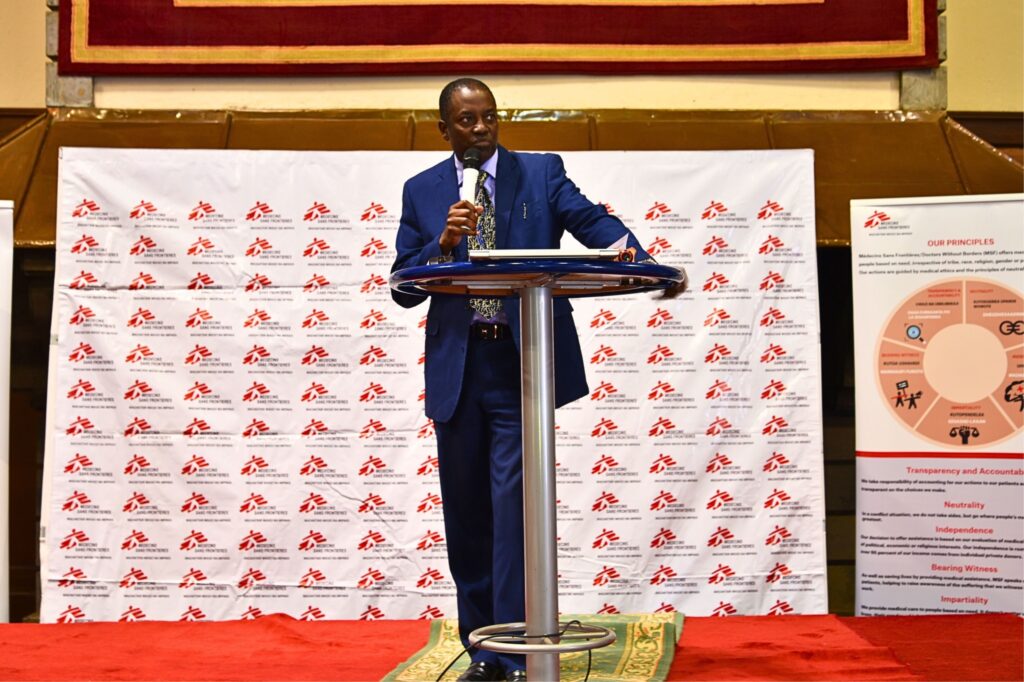Health
After Five years, Médecins Sans Frontières/Doctors Without Borders (MSF), has handed over Karuri Medically Assisted Therapy (MAT), a Clinic for rehabilitation of drug addicts, to Kiambu County Government and Kenya Prison Services.
In September 2019, MSF began enrolling People who use drugs (PWUDs) into the MAT clinic at Karuri Hospital, providing access to a medical substitute for opioids- such as heroine reducing related health risks and deaths and improving the lives of people who use drug
Since it commenced, the clinic has reported about 1,619 people have benefitted from this holistic program, with 556 currently receiving care in the clinics
This milestone handover of the clinics is made possible due to the training of Healthcare Workers, and the County Department of Health Services and Kenya Prisons Services commitment to provide the services to people who use drugs.
“We have Healthcare Workers who now have the knowledge on patient care and management of the clinic,” said Dr Elius Maina, County Executive Committee Member (CECM) for Health.
“We acknowledge that the MAT services are still crucial for the patients from Kiambu, and for that reason, we will continue with the services even after MSF exit,”.

CECM Dr Maina During the handing over event of Karuri MAT Clinic for rehabilitation of drug addicts from MSF Belgium to the County Government at Windsor Hotel
Kiambu ranks amongst the top counties in Kenya with the highest number of people who use drugs (PWUDs), specifically heroin, the most affected Sub-Counties include Kiambaa, Juja, Thika, and Kikuyu. The MAT services are offered within the precincts of Karuri Level 4 Hospital in Banana ward, hence the clinics is closer to patients’ homes to enhance adherence to treatment.
The Clinic has also made plans to ensure that Patients unable to access the daily methadone dose due to various reasons like illness, injuries or school, get daily home or hospital deliveries through peer educators. The MAT clinics provide methadone and Buprenorphine, in liquid and tablet forms, respectively, as opioid substitution therapy (OST), a component of harm reduction.
“The harm reduction approach aims at reducing negative health, social, legal and financial consequences of drug addiction,” explains Dr. Edi Atte, MSF Country Director in Kenya.
“The MAT clinics are a one stop medical facilities approach, with a holistic approach to treatment beyond opioid substitution. This includes the prevention of infections and transmission of HIV and viral hepatitis which are caused by using unsterile needles, prevention and treatment of TB, mental health and psychosocial support, and re-integration support with family and community,” Dr. Atte explained.
To enhance social reintegration and economic self-reliance, for patients already stable and in school or working, with good support in their recovery journey, and who are unable to make it daily to the facilities, the MAT clinic ensures they receive at most two weeks of dosage, that is packaged and locked in a safe box for safe keeping at home.
The MSF Country Director in Kenya also cited that they have also handed over two other MAT clinics to Kenya Prisons Services in Ruiru Prisons Staff Training College (PSTC) Health Centre and Thika GK Prison, which Also serve both incarcerated patients and patients from the communities.